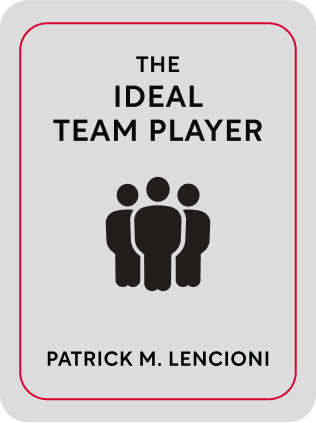

This article is an excerpt from the Shortform book guide to "The Ideal Team Player" by Patrick M. Lencioni. Shortform has the world's best summaries and analyses of books you should be reading.
Like this article? Sign up for a free trial here .
How important is a teamwork culture in your organization? What are some things you can do to establish a strong culture of teamwork and cooperation?
For organizations committed to a teamwork culture, hiring the right people and encouraging team spirit is key. According to Patrick Lencioni, the author of The Ideal Team Player, the key to developing a strong teamwork culture in an organization is to hire natural team players who possess the following three qualities: being humble, hungry, and smart.
Besides helping individuals become humble, hungry, and smart, it’s important to embed these values in your company’s culture. Here are some ways to do that.
Talk About Teamwork Constantly
Leaders who believe in teamwork should talk about their commitment to the three virtues to everyone—customers, partners, vendors, and job candidates. That helps establish the expectation among people dealing with the company that employees will be humble, hungry, and smart and encourages employees to behave that way. And as word gets around, the organization becomes known for its culture, and it’s easier to find employees who are a good fit.
While it may sound simplistic or contrived to some, the organizations that are most explicit about a teamwork culture are the most successful in building it.
Reward People for Teamwork
Managers often don’t say anything when employees do what they want them to, but they’re missing an opportunity. When employees act in ways that show humility, hunger, or people skills, leaders should call attention to it. Praise rewards and motivates the employee and reminds everyone else of what’s expected.
Address Violations
When you see behavior that goes against one of the values, whether the misstep is major or minor, let the violator know. Employees are often unaware of small slip-ups and learn the most from them when a manager or team leader points them out. This doesn’t mean treating minor and major missteps the same—managers need to use good judgment. The important thing is, don’t miss opportunities for learning.

———End of Preview———
Like what you just read? Read the rest of the world's best book summary and analysis of Patrick M. Lencioni's "The Ideal Team Player" at Shortform .
Here's what you'll find in our full The Ideal Team Player summary :
- The qualities of a model team player
- How to transform your organization by developing your current employees into team players
- How to make sure you hire team players in the future






